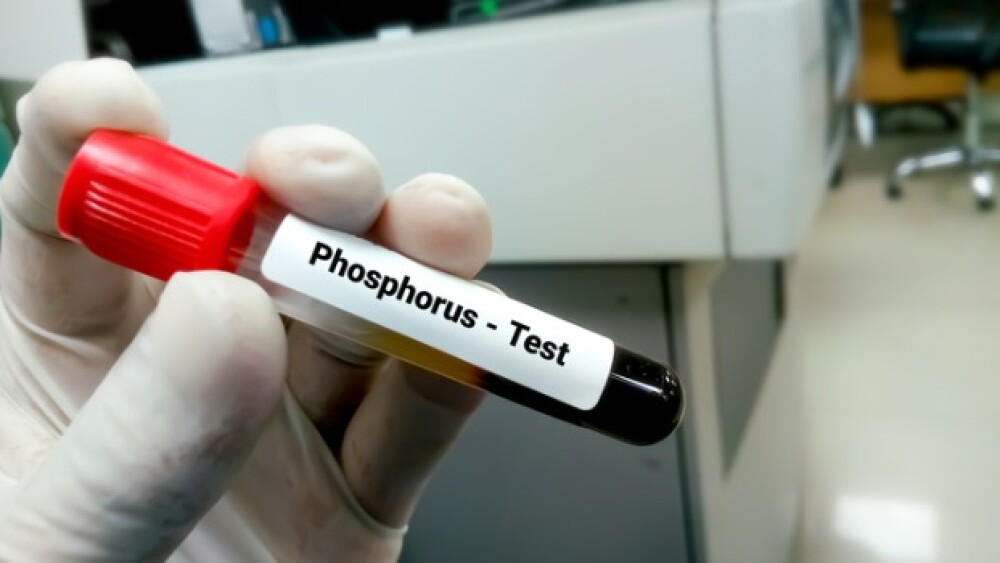The company’s resubmission succeeded in getting the greenlight for tenapanor, now to be marketed as Xphozah, to lower serum phosphorus levels in chronic kidney disease patients.
Pictured: Test-tube containing a blood sample for measuring serum phosphorus levels/iStock, Md Saiful Islam Khan
The FDA on Tuesday gave the greenlight to Ardelyx’s tenapanor, now to be marketed under the brand name Xphozah, indicated to reduce serum phosphorus levels in patients with chronic kidney disease.
Tuesday’s approval covers chronic kidney disease (CKD) patients on dialysis who had previously shown an inadequate response to phosphate binders, or who are otherwise intolerant to such therapies. Xphozah’s label bears no boxed warning but carries a precaution against severe diarrhea, the most common observed adverse event during the drug’s development.
Ardelyx CEO Mike Raab called Tuesday’s approval an “important milestone” for dialysis patients, their families and the larger nephrology care community. Xphozah “represents a new mechanism and new option for patients who, despite treatment with phosphate binders, continue to have elevated phosphorus.”
Xphozah is taken as 30-mg oral tablets twice-daily, before the morning and evening meals. Its active ingredient, tenapanor, is a first-in-class phosphate absorption inhibitor that acts locally in the gut to block the NHE3 transporter protein, a crucial player in the paracellular phosphate absorption pathway.
Despite this differentiated mechanism of action, Ardelyx had previously failed to secure a regulatory approval for tenapanor. In July 2021, the FDA handed the Massachusetts biotech a Complete Response Letter, citing the molecule’s effect size and finding it to be “small and of unclear clinical significance.”
At the time, the regulator indicated that future submissions would need an additional trial that demonstrated “clinically relevant treatment effect” of tenapanor treatment.
In November 2022, tenapanor faced the FDA’s Cardiovascular and Renal Drugs Advisory Committee, which voted 9-4 that its benefits outweighed the risks.
Encouraged by the adcomm victory, Ardelyx returned to the regulator in April 2023 with a more comprehensive resubmission.
The company provided findings from a large development program with more than 1,000 patients enrolled across three Phase III studies: PHREEDOM, BLOCK and AMPLIFY. All three trials achieved their primary efficacy endpoints, indicating that Xphozah could significantly reduce serum phosphate concentrations compared with placebo.
The drug was also largely safe across the three studies. Diarrhea was its most common side effect, occurring in 43% to 53% of patients. However, most episodes were mild or moderate in severity and resolved spontaneously with time or with dose reduction. Around 5% of patients developed severe diarrhea.
In addition, Ardelyx ran two Phase IV open-label studies—OPTIMIZE and NORMALIZE—which looked at different options to integrate Xphozah into clinical practice.
Ardelyx is currently preparing to launch Xphozah and expects the product to be commercially available in November 2023, according to the company’s announcement.
Tristan Manalac is an independent science writer based in Metro Manila, Philippines. He can be reached at tristan@tristanmanalac.com or tristan.manalac@biospace.com.






